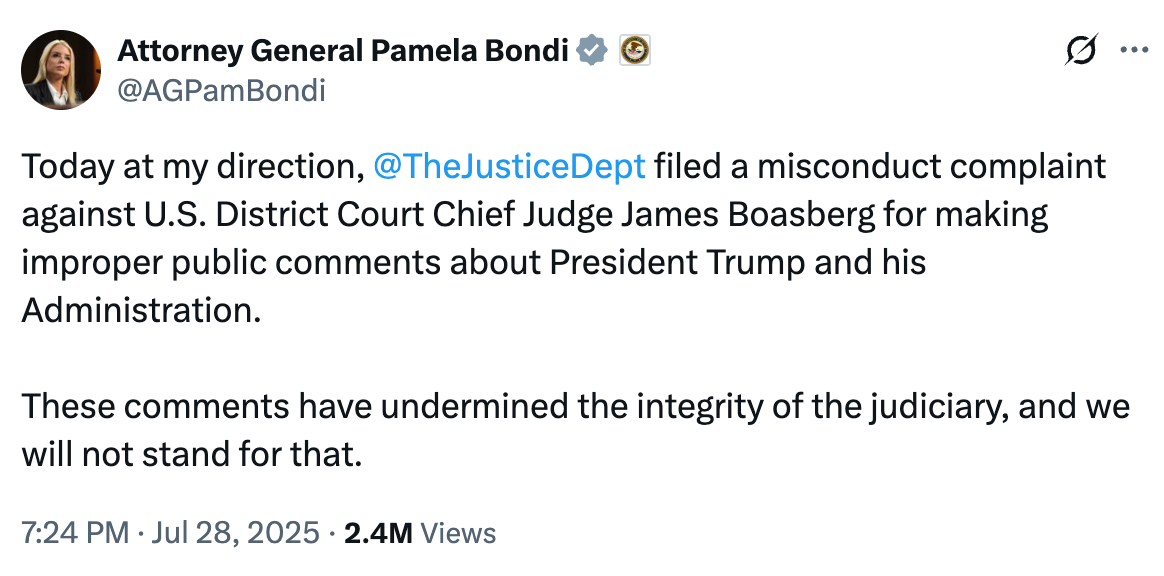July 31, 2025
Performative Judicial Complaint Meets the Freedom of Information Act in a Clash Over Ethics and Transparency

In a dramatic move on July 28, Attorney General Bondi's Chief of Staff, Chad Mizelle, delivered a fiery ethics complaint against Chief Judge James Boasberg of the US District Court for the District of Columbia to the US Court of Appeals for the DC Circuit. The complaint accuses Judge Boasberg of intimidating Chief Justice Roberts and expressing a bias against the Trump administration during a Judicial Conference meeting—a claim that has sparked a whirlwind of controversy.
The complaint details how Judge Boasberg allegedly strayed from the meeting’s agenda to voice concerns that the Trump Administration might "disregard rulings of federal courts," potentially leading to "a constitutional crisis." The Justice Department claims this violates the Judicial Canons by undermining "the integrity and independence of the judiciary" and making inappropriate public comments about ongoing matters.
However, legal experts and observers are quick to point out the absurdity of the claims, emphasizing that the Judicial Conference meetings are confidential and not public. They argue that any discussions within these sessions do not constitute public commentary. Moreover, Judge Boasberg's concerns appear to have been prophetic, with the DOJ reportedly defying court orders in multiple instances, according to the Washington Post.
In an apparent pattern of performative legal maneuvers, similar to previous complaints filed by GOP members against various judges, this latest complaint has raised suspicions about its genuineness and underlying motives. Critics argue that it seems less about upholding judicial ethics and more about political theatre.
Adding to the intrigue, the complaint references a mysterious "Attachment A," which was not included in the documents provided to reporters. This omission has fueled further speculation and questions about the authenticity and completeness of the allegations.
The situation took another twist when right-wing commentator Margot Cleveland of The Federalist claimed to have an exclusive memo summarizing the Judicial Conference meeting. Her account, which appears to misrepresent Judge Boasberg’s statements as his own beliefs rather than a relay of his colleagues' concerns, has only added layers of complexity to the unfolding drama.
Amidst this legal and media maelstrom, the Law and Chaos Podcast has taken a proactive step by filing a Freedom of Information Act (FOIA) request for the elusive "Attachment A" and any related documents. Legal experts argue that once the Department of Justice used the supposed memo to formulate an official complaint, it transformed into an agency record, thereby making it subject to FOIA.
This legal battle underscores not only the contentious political climate but also the vital importance of transparency and accountability in government proceedings. As this case continues to unfold, it serves as a stark reminder of the intricate dance between ethics, law, and politics in America’s judicial system.